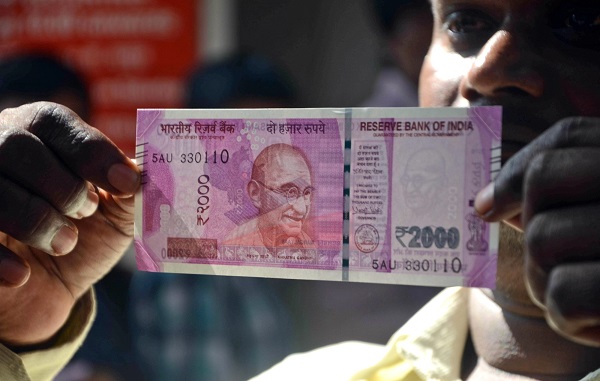Kolkata, (Samajweekly) No major rush for exchange or spending of Rs 2,000 denomination notes was witnessed so far for sending or exchanging these pink notes since the time the Reserve Bank of India (RBI) on Friday announced its gradual phasing out.
A manager of a private sector bank’s Kasba branch in south Kolkata told IANS that on Saturday, the receipts of Rs 2,000 denomination notes had been marginally higher at 10, compared to seven to eight on normal working days.
So was the experience of an assistant manager of a public sector banks’ Elgin road branch, who said that on Saturday, barely 20 notes of Rs 2,000 denomination were received at the branch which is more or less the same as normal days.
“The panic and rush that were witnessed after the demonetisation in 2016 were nowhere witnessed on Saturday. Probably, from Monday, the number of deposits of pink notes might increase,” he added.
Retail outlets, barring the petrol pumps, in the city too have not witnessed much rise in the number of receipt of such high denomination notes from Saturday morning till Sunday noon.
Some petrol pumps in the city like the one at Jodhpur Park in south Kolkata are ready to accept Rs 2,000 denomination note provided the price of the fuel purchased is at least 40 per cent of the cash paid in pink notes.
This means that any customer paying a Rs 2,000 denomination note will have to purchase fuel of around Rs 1,000 or more.
Former Chief Economic Advisor to the Union government, Ashok Kumar Lahiri, who is currently a BJP legislator from West Bengal, feels that not the common people but those earning money through corrupt practices have reasons to worry over this gradual phasing out of Rs 2,000 denomination notes.
“During the 2016 demonetisation, Rs 500 and Rs 1,000 denomination notes contributed 85 per cent of the total cash available in the system. But Rs 2,000 denomination notes currently is just 11 per cent of the cash available in the system, considering that there had been no fresh printing of notes of this denomination for the last few years. Again these high-value notes are of more demand for those having unaccounted money or money earned through corrupt practices, since the pink notes require stocking space compared to lower denomination notes,” he contended.










